A guide to gifts that climbers will actually use
For Any Climber | For Outdoor Climbers | Under $25 Stocking Stuffers | Pricier Gifts | Thoughtful Gifts | Final Considerations
Climbers can be gearheads with specific preferences, but they also love practical, thoughtful gifts that support their adventures. Whether they’re crushing boulders, projecting sport routes, or chasing alpine dreams, there’s something out there to make their next climb even better.
As a climber myself, who really mostly associates with other climbers, I’ve received a good amount of unique, useful, and much appreciated climbing gifts.
In this guide, you’ll find a mix of gear, accessories, and fun surprises to make any climber smile—whether they’re seasoned pros or just getting started. I’ve provided some options under $25 and some more expensive options to cover a range of budgets. Gift on!
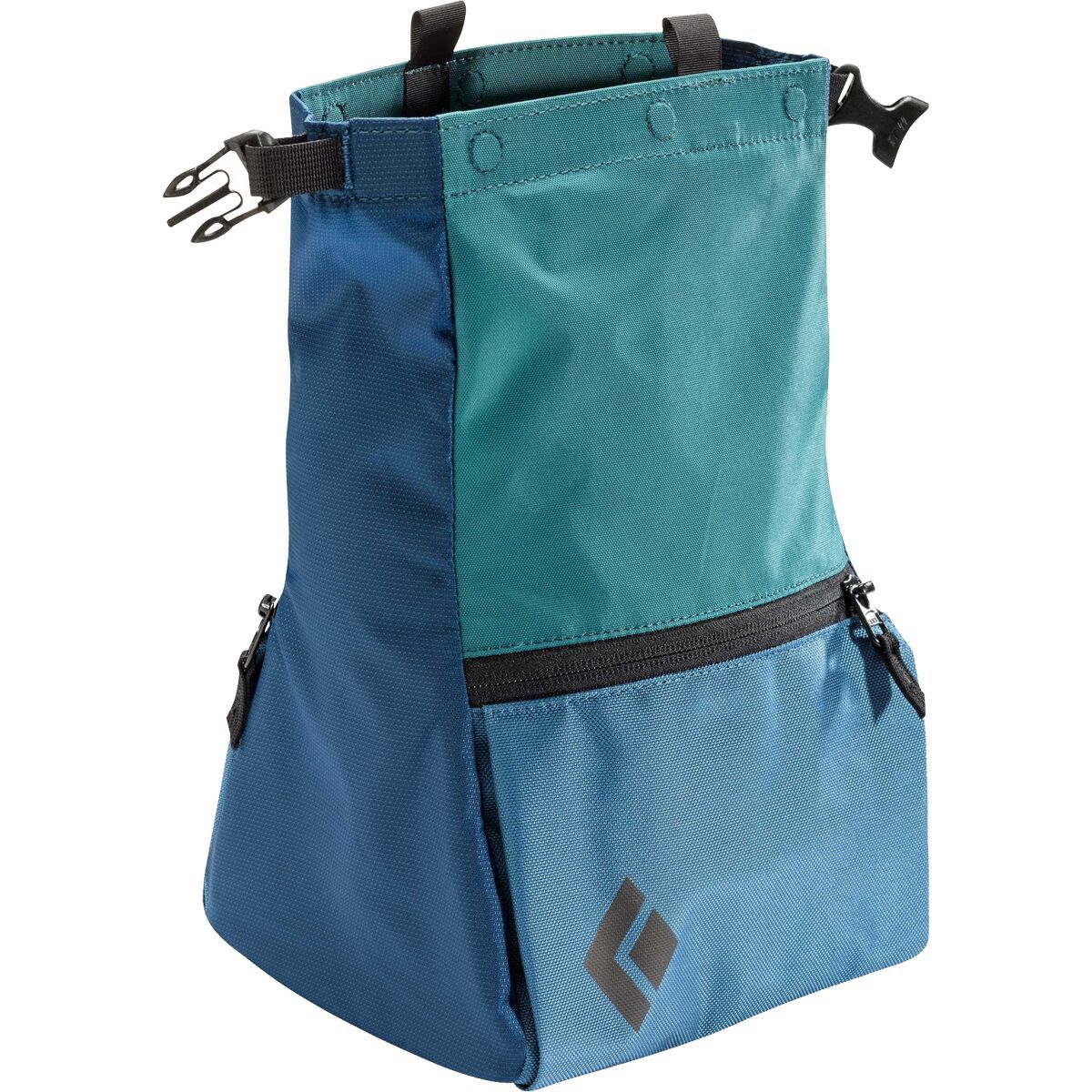

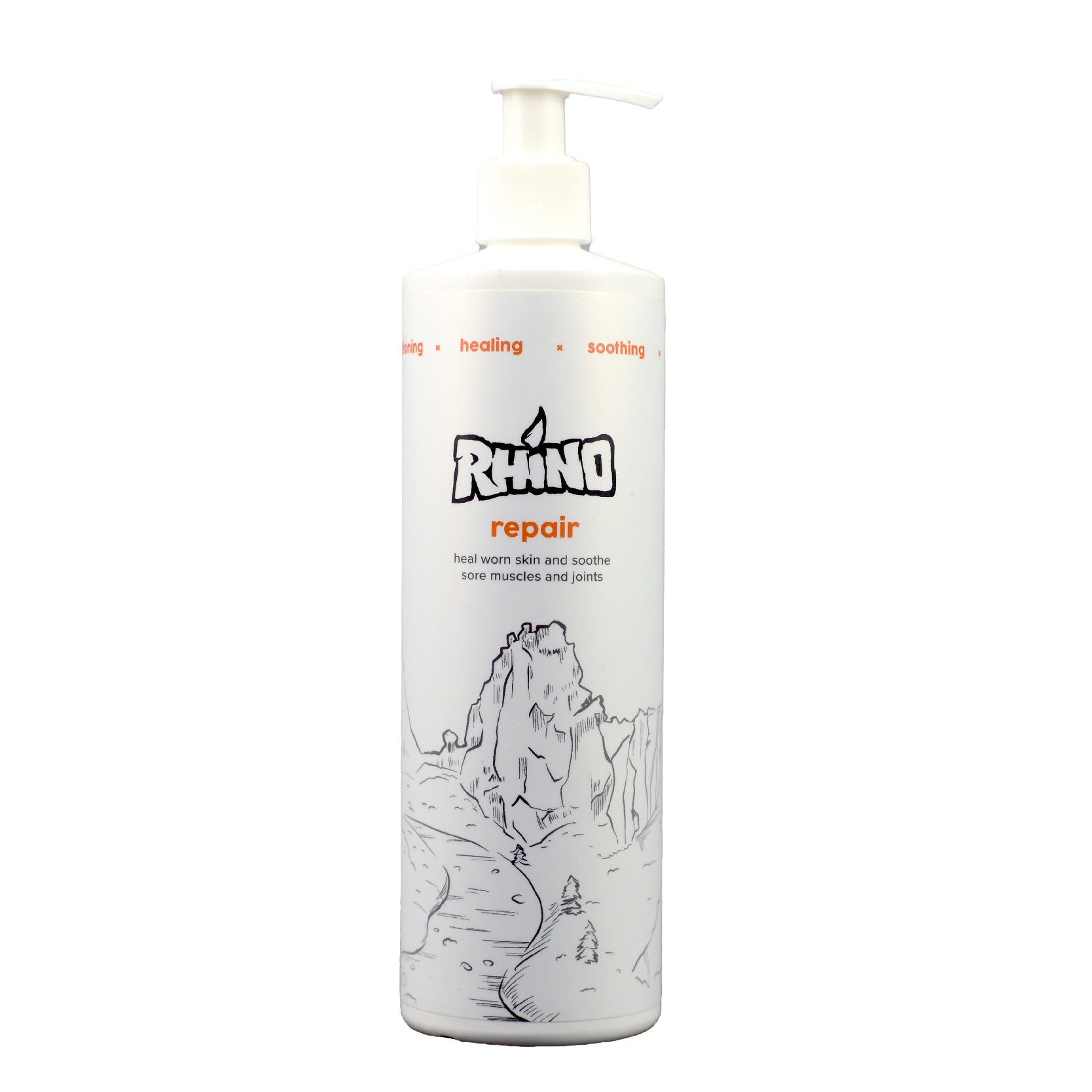
Gifts for Any Climber
1. Black Diamond Mondo or Mondito Chalk Bucket ($15-30)
While seasoned boulder bros may already have a chalk bucket, newer climbers might only have a regular chalk bag.
The Black Diamond Mondito and bigger Mondo are both chalk pots with simple roll-up closures, brush holders, and pockets.
You can typically snag both from around $25, with occasional sales down to $15. I’ve owned the Mondo for a couple years and find it easy to use and an overall well-designed product.
2. Rock Rings or Similar Training Gear ($40-50)

Rock rings make a good gift for climbers who have a pull-up bar or access to one.
I’ve met folks with the plastic Metolius Rock Rings and personally have some wood ones. From talking to climbers, most intermediate to advanced climbers I’ve met have a strong preference for the wood ones as the plastic ones are quite juggy and don’t have much of a “fingerboard” feel. They could make a good gift for a newer climbers.
3. Belay Glasses ($30)

Belay glasses are a valuable tool for climbers, designed to reduce neck strain and improve comfort during prolonged belays.
I was gifted the BG belay glasses a few years back and find myself using them more and more. The different view takes a bit to get used to, but it beats a sore neck and mega forehead wrinkles from looking up.
4. A Quality Screwgate Locking Carabiner ($12-25)
Climbers at any level will probably appreciate a screw-gate locking carabiner from any reputable brand like Petzl, Black Diamond, Edelrid, Metolius, Trango, Mammut, etc.
Climbers may have their own preferences about carabiner shape (which depends on usage) and overall brand/style. I think a safe bet is a screw gate HMS carabiner.
I personally do not like auto-lockers, and I like a clear “lock/no-lock” indicator like the bright orange of Mammut biners.
5. Chalk ($5-20)

The best kind of climbing chalk is really down to personal preference. I’ve tried at least 5 different kinds of chalk and aside from hating chalk balls and chunky chalk, all the powdered stuff has felt more or less the same to me.
Buy something in your price range, and I guarantee you any chalk you give will get used and be appreciated.
For Outdoor Climbers
1. Dyneema or Nylon Slings ($10-20)
Dyneema or nylon slings make a fantastic gift for climbers because they are versatile, lightweight, and indispensable tools for various climbing scenarios. Whether used for building anchors, extending protection, or equalizing belay points, slings are essential pieces of gear that every climber needs.
Affordable yet practical, slings are a thoughtful gift that shows you understand a climber’s needs and priorities. Most climbers can always use another 60cm or 120 cm sling.
2. BD Litewire or Miniwire Carabiners ($7 each)
Trad climbers, especially those building a rack, may appreciate a “rack pack” of color coded carabiners to go with their cams.
Outdoor sport climbers will probably also appreciate a couple non-lockers (don’t get the color-coded ones in this case). Non-lockers like the BD Litewires are useful for building anchors and in alpine draws. Plus, you can get singles of these biners for around $7 if you want a really affordable gift.
3. Follower Pack for Multipitches ($60-250)
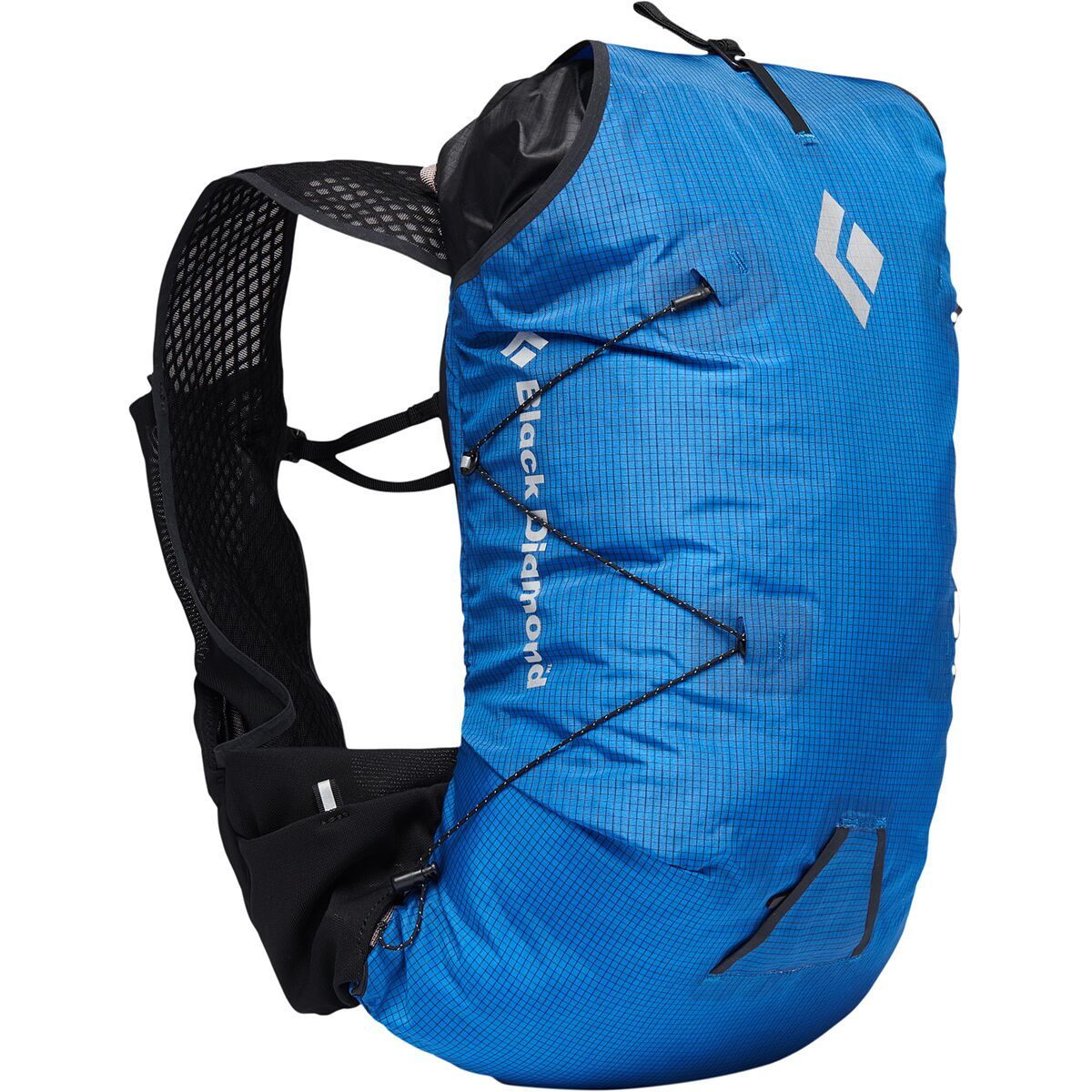
On multipitch climbs, the follower or “second” will come up on top rope and often carry a small pack with snacks, water, etc.
I personally use the $60 REI Flash 22 for this purpose, but there are more purpose-built bags out there between 10-22L.
Some examples include the Black Diamond Distance 15L ($180, pictured above) and the Arc’teryx FL 20 ($250).
4. An Andy Kirkpatrick Book ($10-30)
Andy Kirkpatrick is a British climber and author, known for his expertise in big wall and alpine climbing. He’s written several books on his own experience, plus fantastic in-depth instructional guides.
I’m currently reading Down: The Complete Descent Manual for Climbers, Alpinists and Mountaineers. I’ve found it to be ultra comprehensive as Kirkpatrick dissects a multitude of important things to keep in mind and systems for rappelling and generally descending. He has several other books including:
5. That Piece of Camping Equipment They Don’t Yet Have
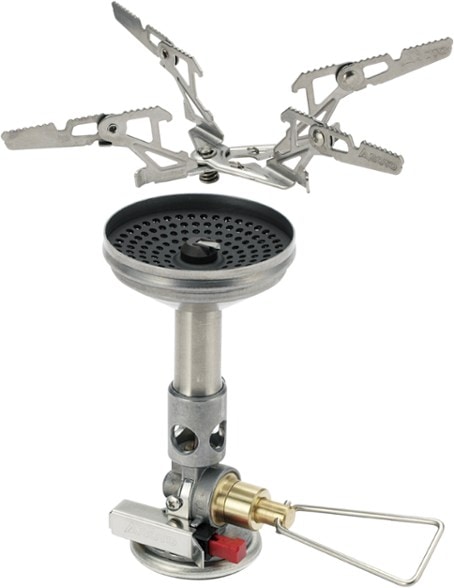
Climbers and campers often have some overlap in terms of personality. Plus, the cheapest way to stay near the best climbing destinations is typically to camp. Does the climber in your lift need any camping gear?
Do they have a stove and pot, quality sleeping pad, need some more fuel, etc.?
6. Guidebooks to Local Crags
Local climbing guidebooks make an excellent gift for climbers, offering more than just route information—they provide a gateway to adventure and connection with the climbing community. These books often feature detailed topos, historical insights, and beta on the best routes, making them invaluable tools for planning trips and exploring new areas.
You can buy local climbing books on Amazon, but a more community-oriented approach would be to check out a local gearshop, climbing gym, or used bookstore. See what you can find! I’ve even seen a lot of guidebooks for sale on Mountain Project or Facebook Marketplace.
Under $25 Stocking Stuffers
1. Tape ($5-10)
Climbing tape is a simple yet essential gift for climbers, ideal for protecting skin during crack climbing or reinforcing fingers to prevent injuries. It’s a practical item climbers always need, making it a thoughtful and useful present.
I like Hampton Adams tape because I find it’s quite easy to tear.
2. Rhino Skin ($19)
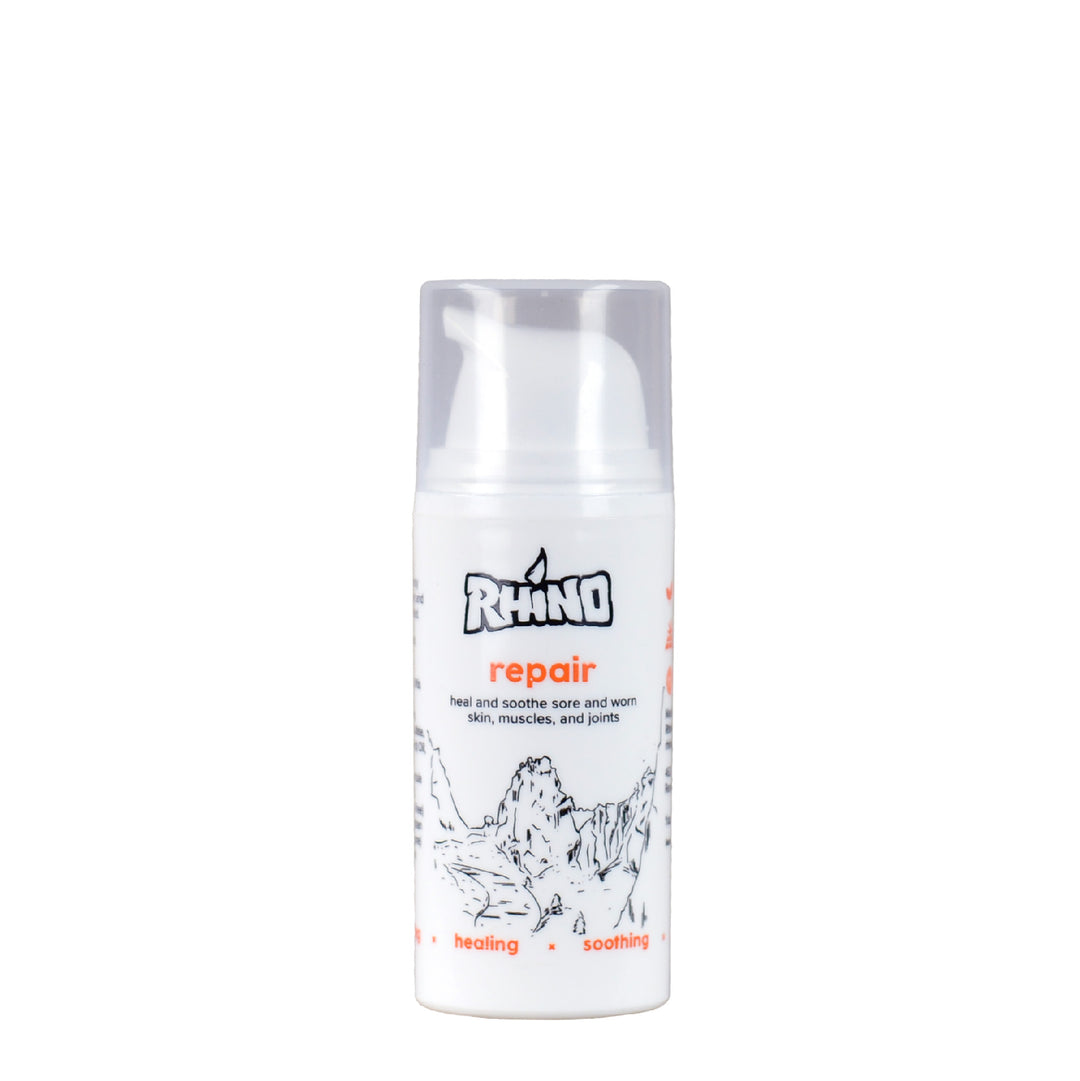
Rhino Skin Solutions Repair Cream helps climbers care for their hands by healing cracked skin. I’ve used Rhino Repair to soothe my skin after a couple tough sessions. The cream also contains some menthol and other things like tea tree oil and willow bark, meant to help soothe muscles and joints.
3. Chalk Brushes ($5-10)
Chalk brushes are perfect for keeping holds clean and grippy, improving both performance and environmental stewardship. Compact and affordable, they’re a great gift for any climber who values good friction and responsible climbing practices.
Pricier Gifts
1. An American Alpine Club Membership
AAC members gain access to discounts on gear, guidebooks, and lodging, including AAC’s network of climber-friendly campgrounds. They also enjoy rescue insurance coverage and valuable resources like access to climbing grants and an extensive library of climbing literature.
Beyond the tangible perks, an AAC membership connects climbers to a supportive community and helps fund advocacy for climbing access and conservation. It’s a meaningful gift that supports a climber’s adventures while giving back to the broader climbing community.
I recommend springing for the Partner tier, which is between $65-100, because that is the tier where rescue coverage becomes a thing.
2. Rocky Talkie Mountain Radios ($110 each)

Rocky Talkie Mountain Radios are a pricier gift, but they’re an incredibly high value and useful tool for communication between belayer and climber. I’ve even used mine in the contexts of single-pitch climbing where it’s hard to hear due to wind.
There’s a solid one-time 20% discount if you have an AAC membership, so keep that in mind when you purchase.
3. A Guided Adventure or Instruction
A gift card to a local guiding company or sponsoring a day with a guide could make an amazing gift. It offers the chance to learn new skills and explore exciting routes. Whether they’re beginners looking for their first outdoor experience or seasoned climbers wanting to tackle something new, this gift is all about creating unforgettable adventures.
Plus, it supports local guides and businesses, making it a thoughtful choice for both the climber and the community. Prices will likely vary based on region, but expect somewhere between $400-700 for a day.
4. Cams ($70-100 each)

If your rock climber is an avid trad climber, they’ll appreciate cams. This may only be a good gift if you have a sense of what they have in their rack already. After all, you don’t want to get a cam size they don’t need or a brand that’s different from what’s in the rest of their rack.
Given the bigger investment here, you may want to ask if there are any cams they’re planning to purchase soon. Climbers in the US often have Black Diamond cams (C4s, Z4s, or Ultralights), Totems, or Wild Country Friends. If you don’t know the difference between C4s, Z4s, and Totems, it’s probably a good idea to just ask your climber friend.
Expect to spend $90-100 on cams, but you can find some good Black Diamond discounts (usually 25% off) around the holidays.
5. A Quality Puffer Jacket ($100-300)
A puffer jacket is a fantastic gift, perfect for chilly crag days, alpine adventures, or layering during long belays. Filled with down or synthetic insulation, puffers provide exceptional warmth-to-weight ratios, ensuring climbers stay comfortable without adding bulk.
Their compact design allows them to be easily stashed in a pack, ready for unpredictable weather or cold evenings at the crag. Durable, versatile, and stylish, a puffer jacket is a thoughtful and practical gift that any climber would appreciate for both climbing trips and everyday use.
Based on my experience with them, I’d recommend the Patagonia Down Sweater ($279) or REI Co-Op 650 ($130). Both are warm and durable, though the Patagonia option has higher fill (warmer) and is more suited to rugged outdoor use.
6. A Gift Card to Their Favorite Outdoor Store
If you’re still unsure what to get the climber in your life, you honestly can’t go wrong with a gift card to a major outdoor retailer (or local shop). Pick a number that fits your budget, and your climber friend or family member is sure to appreciate it!
Thoughtful and Unique Gifts
1. Sling or Chalk Bag plus Sentimental Photos
One of my favorite climbing gifts ever was a trad gear sling gifted to me for my birthday this past year. But it wasn’t just your standard trad gear sling.
My friends tied photos from our climbing adventures and my favorite snacks around the whole thing, which made it both practical and sentimental.
You could do the same thing with any configuration of climbing gear. Chain together some carabiners and attach some photos or your climber’s fav snacks. Grab a chalk bag and fill it with kind notes or memories, plus a couple small snacks. Tie some cute photos or notes to a dyneema sling.
2. A Guidebook to Their Dream Climbing Destination
Another thoughtful gift for any climber is a guidebook to their dream climbing destination. Not only does it inspire their next adventure, but it’s also an essential tool for planning routes and navigating new crags.
Whether they dream of scaling the limestone cliffs of El Potrero Chico in Mexico, tackling the iconic routes in the Shawangunks (aka the Gunks) in New York, or exploring the sandstone wonderland of Red Rocks near Las Vegas, a guidebook is both practical and personal.
Plus, it’s a gift that keeps on giving—every time they open it, they’ll be one step closer to their next send.
Considerations for Buying Climbing Gear
When it comes to key pieces climbing gear, safety is everything. Unfortunately, platforms like Amazon have a reputation with counterfeit climbing products.
Users have reported instances where fake products were mixed with genuine stock, leading to potential safety hazards. Some of these fakes look convincing but don’t meet safety standards—and that’s a huge risk when someone’s life depends on their gear.
For example, there have been cases of fake harnesses and ropes sold on Amazon that claimed to be certified but weren’t. Even worse, some counterfeit gear has failed under stress.
To avoid risk, I personally skip Amazon altogether for any climbing gear I am trusting my life to. This excludes fun, non-critical things like chalk bags and brushes.
I shop at trusted retailers like REI, Backcountry, or directly from climbing brands. It’s even better if there’s a local climbing store or small business near you that carries reputable gear.
